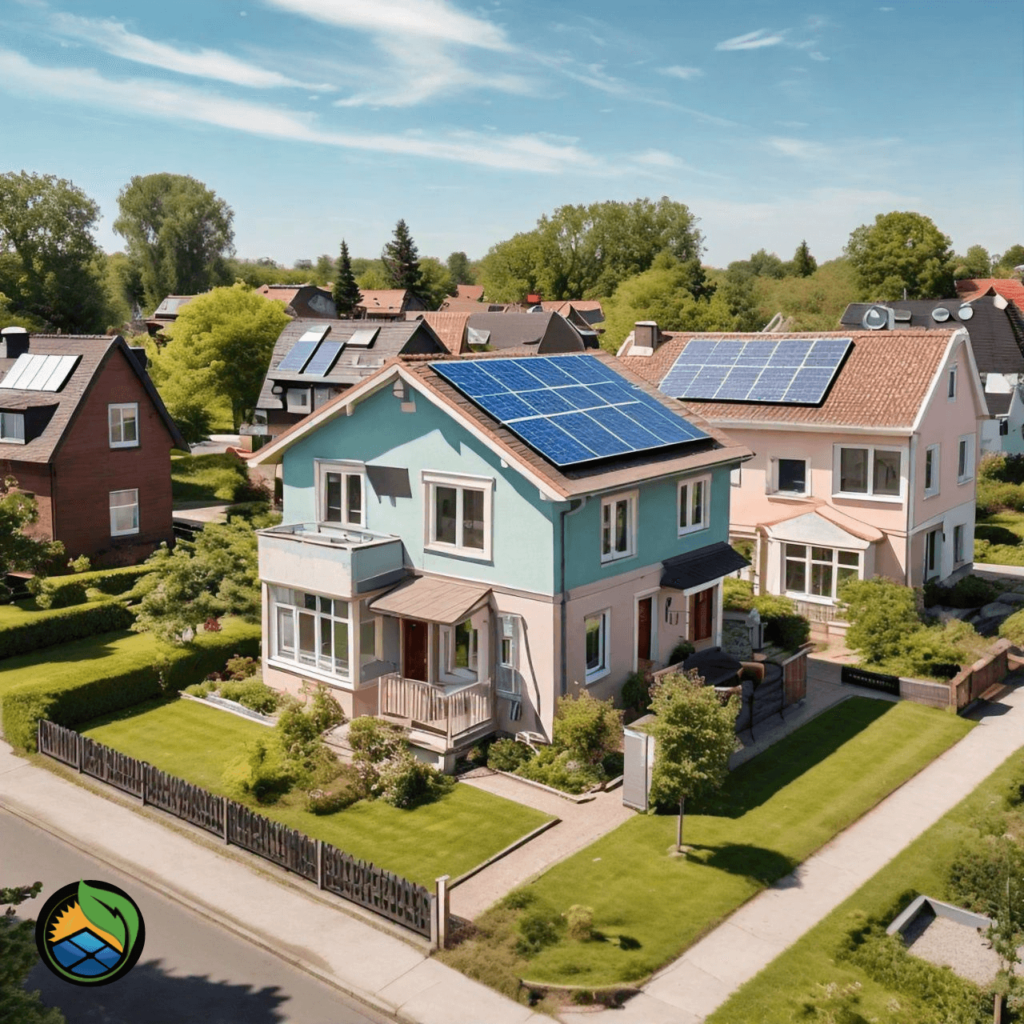Solar power is revolutionizing the way we think about energy production and its impact on our planet. By harnessing the sun’s energy, we can generate electricity in a way that is both sustainable and environmentally friendly. Let’s dive into the various ways solar power is good for the environment.
Introduction
Solar power is an increasingly popular choice for generating electricity, especially in countries like Pakistan where sunlight is abundant. But beyond its efficiency and cost savings, solar power offers significant environmental benefits. In this blog post, we’ll explore how solar power is good for the environment, emphasizing its role in reducing greenhouse gas emissions, decreasing air pollution, conserving water resources, reducing dependence on fossil fuels, minimizing habitat destruction, supporting sustainable development, and mitigating climate change.
Reducing Greenhouse Gas Emissions

One of the most significant benefits of solar power is its ability to reduce greenhouse gas emissions. Unlike fossil fuels, which release large amounts of carbon dioxide (CO2) when burned, solar power generates electricity without emitting greenhouse gases. This reduction in CO2 emissions is crucial in the fight against climate change, as it helps to mitigate the warming of our planet.
Decreasing Air Pollution
Fossil fuel power plants are major sources of air pollution, emitting harmful pollutants such as sulfur dioxide (SO2), nitrogen oxides (NOx), and particulate matter. These pollutants can cause respiratory problems, cardiovascular diseases, and other serious health issues. Solar power, on the other hand, produces clean energy without releasing these harmful pollutants, leading to cleaner air and healthier communities.
Conserving Water Resources
Traditional power plants, particularly those that rely on coal or nuclear energy, require vast amounts of water for cooling purposes. This consumption can strain local water resources, especially in arid regions like parts of Pakistan. Solar power systems, however, require little to no water to operate, conserving this precious resource and reducing the environmental impact on local water bodies.
Reducing Dependence on Fossil Fuels
Solar power reduces our dependence on finite fossil fuels such as coal, oil, and natural gas. These fuels not only contribute to environmental degradation through extraction processes but also pose risks of spills and leaks, which can have devastating ecological consequences. By investing in solar energy, we can shift towards a more sustainable energy future that relies on renewable resources.
Minimizing Habitat Destruction
The extraction of fossil fuels often leads to habitat destruction and biodiversity loss. Mining, drilling, and fracking disrupt ecosystems, displace wildlife, and degrade landscapes. Solar power installations, particularly rooftop systems, have a much smaller footprint and can be integrated into existing structures, minimizing the impact on natural habitats.
Supporting Sustainable Development

Solar power supports sustainable development by providing a reliable and renewable source of energy. It can be deployed in remote areas, bringing electricity to communities that are not connected to the grid. This access to clean energy can improve living standards, support local economies, and promote educational and health services.
Mitigating Climate Change
The use of solar power is a critical component in the global effort to mitigate climate change. By reducing greenhouse gas emissions and decreasing our reliance on fossil fuels, solar energy helps to stabilize global temperatures and reduce the frequency and severity of extreme weather events. This positive impact on climate change is essential for protecting our planet for future generations.
FAQs
Is solar power good for the environment?
Yes, solar power is very good for the environment. It produces clean, renewable energy that significantly reduces greenhouse gas emissions and air pollutants. Solar power conserves water resources and minimizes habitat destruction, promoting biodiversity. By decreasing our reliance on fossil fuels, solar energy helps combat climate change and supports sustainable development.
What is the best environment for solar energy?
The best environment for solar energy includes areas with abundant sunlight, minimal shading, and favourable weather conditions. Regions near the equator receive more direct sunlight throughout the year, making them ideal for solar power generation.
What are the advantages of using solar power?
The advantages of using solar power include:
Environmental Benefits: Reduces greenhouse gas emissions and air pollution.
Sustainability: Provides a renewable and inexhaustible energy source.
Cost Savings: Lowers electricity bills and offers potential financial incentives.
Energy Independence: Reduces reliance on imported fossil fuels.
Low Maintenance: Requires minimal maintenance compared to conventional power plants.
Job Creation: Promotes job growth in the renewable energy sector.
Grid Stability: This can enhance grid reliability and resilience, especially with distributed generation.
How does solar energy affect the Earth?
Solar energy has several positive effects on the Earth. By using solar power, we can decrease air pollution, conserve water resources, and reduce habitat destruction. Solar panels generate electricity without emitting harmful pollutants, leading to cleaner air. They also require minimal water for maintenance, unlike traditional power plants that need large amounts of water for cooling.
How does solar energy reduce greenhouse gases?
Solar energy reduces greenhouse gases by generating electricity without burning fossil fuels. Traditional power plants that rely on coal, oil, or natural gas release large amounts of carbon dioxide (CO2) and other greenhouse gases into the atmosphere. These emissions contribute to global warming and climate change.
Conclusion
Solar power is undeniably good for the environment. It offers a clean, renewable, and sustainable energy source that can significantly reduce greenhouse gas emissions, decrease air pollution, conserve water resources, reduce dependence on fossil fuels, minimize habitat destruction, support sustainable development, and mitigate climate change. By embracing solar power, especially in sunny regions like Pakistan, we can create a healthier, more sustainable future for our planet.
